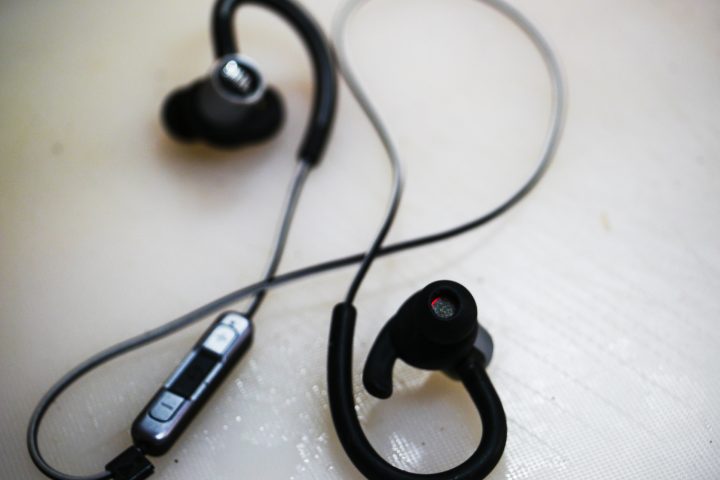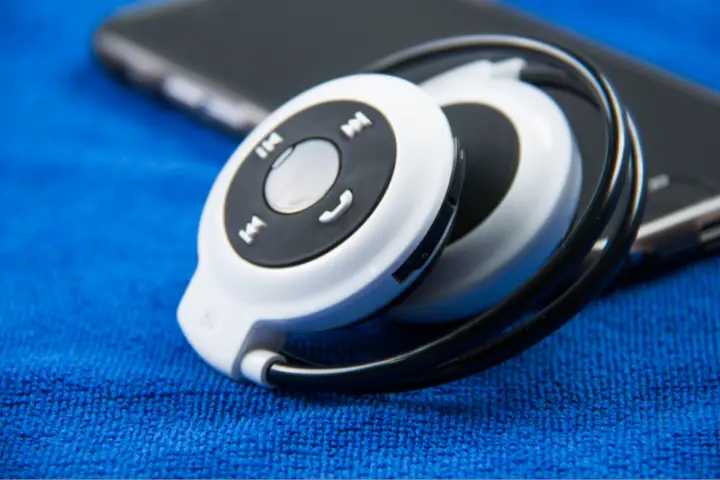Can Bluetooth Headphones Have Malware? BT headphones can be used to transfer malware and a hacker can convert them into listening devices. Read on to learn how to protect yourself.
Table of Contents
The use of smartphones and other digital devices such as PCs and tablets has increased in recent years. But, as beneficial and effective as they are in our lives, they have become contaminated and can cause us a slew of problems.
Viruses can cause misuse of these machines. As a result, you should be very careful while using digital gadgets. Many people ask us, can wireless headphones that they might connect to them also become infected with a virus?
As headphones do not save data, they cannot store or transmit Malware. They also do not communicate complex data that hackers can use to take advantage of the connected gadget. For example, they can only send sound and maybe other signals like play, pause, skip, and volume up/down if they have a microphone.

What Exactly Is Malware?
Malware and viruses are minor programs that target digital devices like smartphones, tablets, and PCs. They cause problems by gaining access to your device.
Malware viruses propagate by duplicating themselves and attaching themselves to other files. Once a virus has been linked to a file or application, it will remain dormant for a long time, displaying no symptoms or signs until its code is executed on your smartphone or computer.
After an appropriate time, the Malware will activate the virus code, and your device will be infected when you run the infected document, software, or file.
Malware is any program that can harm an appliance, steal or meddle with data, or cause a device’s operation to be disrupted. Viruses, spyware, Trojans, worms, adware, and ransomware are all examples of Malware. You’ll need an anti-virus program to keep Malware at bay.
You might like to read: Can You Connect Bluetooth Headphones To PS4
Can Malware Be Spread via Bluetooth Headphones?
In general, headphones are unable to store data. As a result, they are unable to store Malware and transmit it to other machines. Standard connected headphones that use the 3.5mm connector can only provide analog data and not send harmful digital files.
Your headphones, on the other hand, can send digital data if they use the USB connector. A developer might take advantage of a flaw in these headphones to construct something harmful. To execute, you will still need a device that expects data from the headphone.
Wireless Bluetooth headphones are in the same boat. Bluetooth headphones don’t even have a computer operating system.
They can only communicate with other devices through short-wavelength UHF radio waves. As a result, Malware cannot be transmitted using Bluetooth headphones. They don’t have enough room to keep the Malware.

How Bluetooth Headphones Get Viruses?
Malware can modify the function of speakers in headphones and turn them into small microphones which can be used to spy on you. The speakers will transform air vibrations into electromagnetic waves, allowing sound to be captured.
The malware software can break into a computer and record sounds. Even if you switch off the computer’s audio, the spyware will still be able to record all sounds in the room.
When audio chips are used in the software, it modifies the output channels of the computer to make them work as input channels. Hackers could hack headphones and record sounds from a distance of up to 20 feet.
You might like to read: Can Bass Break Headphones
Is It Possible for Someone Else To Listen to Your Bluetooth Headphones?
Yes, it is correct. Someone could obtain access to your device by exploiting a flaw in your Bluetooth connection. The hacker needs to be very skilled, however. Bluetooth devices work through pairing, which encrypts the communication between the machines.
Someone must bypass or crack the encryption to listen to the music playing on the Bluetooth device. It is a difficult task.
On the other hand, an advanced attacker can employ software to access the traffic flowing through the connection. Someone must bypass or crack the encryption to listen to the music playing on the Bluetooth device. It is a difficult task.
An advanced attacker can employ software to gain access to the traffic flowing through the connection. They can then use the link to pause or change the song they’re listening to.
As a result, they serve as a bridge between your two Bluetooth devices. Bluesnarfing and Bluejacking attacks are possible.
When an attacker gains access to your device without your consent, this is known as Bluesnarfing. They may take sensitive information such as email addresses, phone numbers, and credit card numbers.

How Do Viruses Affect Your Smartphones & Devices?
When your smartphone is infected with a virus, unusual and annoying things may occur. These can be:
Unexpected phone charges
Odd charges may occur due to premium phone calls or text messages sent and received from your phone by a malicious program.
Malware advertisements
If you notice intrusive advertisements on your smartphone or digital device, it could indicate that your phone is infected with a virus.
You might like to read: How Do Headphones Break
Overheating of the device
When a phone is infected with a virus, the virus consumes all of the phone’s resources to spread its evil intent. The phone heats up as a result of the tension.
Poor battery life
If you observe a decrease in your phone’s battery life, it could signify that it has been infected with a virus.
Poor performance
While running your device, a virus can cause it to slow down, reboot, crash, or hang.

Automatic messages to your contacts.
Malware can send spam texts to your contacts without your knowledge, and this can lead to your contacts’ devices becoming infected as well.
Excessive data consumption
Some people build viruses such that the virus must be connected to the internet to send and receive information from its owner.
Where do you suppose the data to send the information will come from? Of course, it is through your phone’s data, which can lead to unusual data usage.
Duplication and installation of applications
Seeing an application replicate itself on your phone could be the result of a virus. Also, some programs that you don’t have on your phone may emerge unexpectedly. This could be the result of rogue software installing new and unfamiliar apps on your device.

Frequently Asked Questions
Can Bluetooth headphones contain Malware?
Wireless Bluetooth devices are hardware output devices that link to your computer or phone and allow you to listen to music or watch videos.
This implies that headphones with a wireless or Bluetooth connection cannot become infected. But in some circumstances, these devices can get hacked.
Can wireless headphones get Malware?
According to experts, even if you disable your computer’s microphone, spyware can turn your headphones into surveillance bugs. Careful computer users cover their webcam with a piece of tape and take many other measures to be protected from Malware.
Can a Bluetooth device give you a virus?
Bluetooth is a short-range radio technology that offers wireless connectivity over short distances, and it has been identified as a source of several possible threats, vulnerabilities, and exploits. Hackers can transfer Malware from one device to another using Bluetooth services.

Wrap Up
Standard headphones cannot transmit Malware unless someone makes fake headphones that can be hacked. They do not have enough storage space to save the infection so that the hackers can spread it to other devices.
When you download additional programs, you risk infecting your device with Malware, mainly if you use third-party sources or peer-to-peer networks.
To be secure, always install software applications from the company’s site, and be sure to understand what you’re installing.